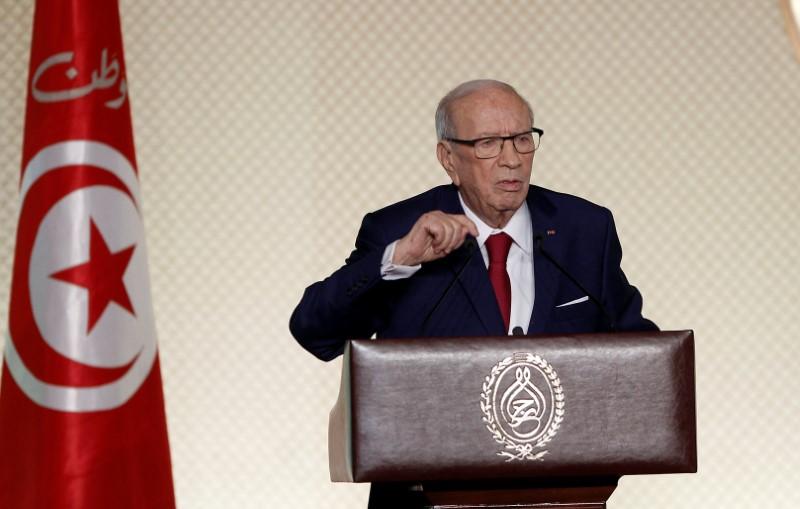
Essebsi speech draws mixed reactions across Tunisia

Tunisian President Beji Caid Essebsi’s speech which was broadcasted Monday evening has aroused different reactions on political scene across the country.
“The breakdown in consensus between the Islamist party Ennahdha (the main ally of the coalition in power in Tunisia) and Nida Tounes (founded by Essebsi) came after the support of Ennahdha to the current government of (Tunisian Prime Minister) Youssef Chahed,” said Ridha Belhaj, leader of Nida Tounes.
According to Belhaj, “Tunisian president issued a strong message by insisting that next presidential and legislative elections must take place in December 2019 and this deadline must be respected.”
“Essebsi criticized the current government’s inability to resolve the country’s economic crisis while calling on Prime Minister Youssef Chahed to address Parliament (Assembly of People’s Representatives, ARP) to renew its legitimacy,” said Belhaj.
Imed Khmiri, official spokesman of Ennahdha, insisted that his party did not break off relations with President Essebsi.
“Ennahdha will always focus on the consensual process with the president and the divergence of points of view absolutely does not mean breaking with the approach of dialogue,” Khmiri said.
Zouhair Hamdi, leader of opposition party Popular Front, the main left-wing alliance within the ARP, said “the content of the speech finally settled the conflict within the ruling majority coalition.”
However, he said that “Essebsi recognized the delicacy of the country’s economic situation, in particular the indebtedness and the trade deficit, hence the failure of the whole system.”
“Through his speech, the president has shown that he no longer masters the tools to bring the country out of social, economic and political crisis,” noted Issam Chebbi, Secretary General of the Republican Party.
“The split between the two main parties at the top of power could generate social tensions in the future,” said Nizar Makni, policy specialist in Tunisia and Mena Zone.
He added that “reforms in Tunisia require a large consensual process and the lack of trust will only lead to chaos and demonstrations.”






